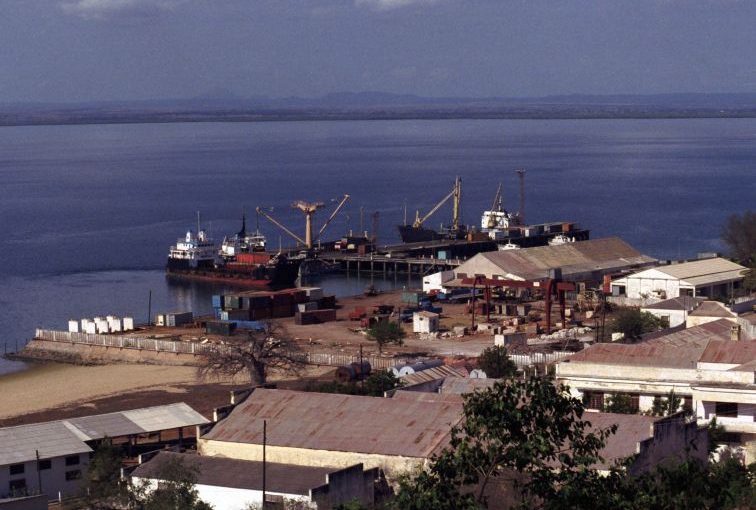Administrative Tribunal calls for reform of Mozambique’s tax and customs laws
Mozambique occupies 136th place in Global Sustainable Development Report

File photo: Lusa
Mozambique is the 136th most sustainable country in the world, according to the first Global Sustainable Development Report, produced w by a team of independent experts ith data from 162 countries for the United Nations [You may download the full report, PDF HERE].
The country had a sustainable development index of 53 points out of 100, close to the sub-Saharan Africa regional average of 53.8 points.
Analysts consider that Mozambique faces “major challenges” meeting 12 of the 17 Sustainable Development Goals (SDGs) adopted by more than 192 countries under the 2030 Agenda.
The biggest challenges have to do with eradicating poverty and hunger. The remaining challenges are health, education, gender equality, clean water, renewable energy, economic growth, industry and justice or institutional strength.
Mozambique best meets SDG 12, on sustainability of production and consumption, and the report also indicates that there is a positive trend in action on climate.
The country’s performance is assessed against various indicators within each sustainable development goal.
Poverty in Mozambique affects 78.2% of the population who live on less than US$3.20 (2.90 Euros) per day, with 56.6% living on less than US$1.90 (1.70 Euros) per day.
In 14 health indicators, almost all Mozambican numbers are worse than recommended. These include child mortality, maternal mortality (489 pregnant women die in 100,000 births), tuberculosis (551 cases in 100,000 people), number of pregnancies of 15-19 year-olds (138.9 births per 1,000 youth) and others.
The report indicates that about 47.3% of Mozambicans have access to safe drinking water and 23.6% use basic sanitation services.
About 24% of the population has access to electricity and 3.7% has access to “clean fuels” and cooking technology.
The report, produced by independent scientists for the United Nations, indicates in a colour chart that Mozambique is in line with SDG 12, sustainable production and consumption, which advocates sustainable management and efficient use of resources. natural resources and the reduction of food waste, among other measures.
Mozambique’s best SDG, sustainable production and consumption, was found to be satisfactory in the indicators for carbon dioxide emissions and municipal solid waste (0.1 kilograms of waste produced per inhabitant per day).
The chart makes it clear that Mozambique’s major problems are common in sub-Saharan Africa and affect almost all of the countries ranked.
Angola, at position 149 of 162, is the worst-performing Portuguese-speaking country in sustainable development, except for the three countries that were not scored (Timor-Leste, Guinea-Bissau and Equatorial Guinea). Portugal takes the 26th position of 162 countries, with 76.4 points.
The ten most sustainable countries in the world are members of the European Union. First on the list is Denmark, with 85.2 points.
The report calls for universal access to basic services such as health, hygiene, sanitation, education, housing and security as prerequisites for poverty eradication and advances in human well-being, with particular attention to persons with disabilities and other vulnerable groups.
Overall, the report concludes that changes and sustainable development in the world are too slow and will not guarantee the achievement of the SDGs by 2030.
Science and politics must play the most important roles in transforming four major areas of human relationship with nature that are currently in “dysfunction”. These are the use of natural resources, the food system, production and consumption and the sustainability of cities, where two thirds of the population will live by 2050.
Human education, education and awareness form another theme that experts advise for sustainable development consideration.
The 17 sustainable development goals (SDGs) to transform our world:
GOAL 1: No Poverty
GOAL 2: Zero Hunger
GOAL 3: Good Health and Well-being
GOAL 4: Quality Education
GOAL 5: Gender Equality
GOAL 6: Clean Water and Sanitation
GOAL 7: Affordable and Clean Energy
GOAL 8: Decent Work and Economic Growth
GOAL 9: Industry, Innovation and Infrastructure
GOAL 10: Reduced Inequality
GOAL 11: Sustainable Cities and Communities
GOAL 12: Responsible Consumption and Production
GOAL 13: Climate Action
GOAL 14: Life Below Water
GOAL 15: Life on Land
GOAL 16: Peace and Justice Strong Institutions
GOAL 17: Partnerships to achieve the Goal












Leave a Reply
Be the First to Comment!
You must be logged in to post a comment.
You must be logged in to post a comment.